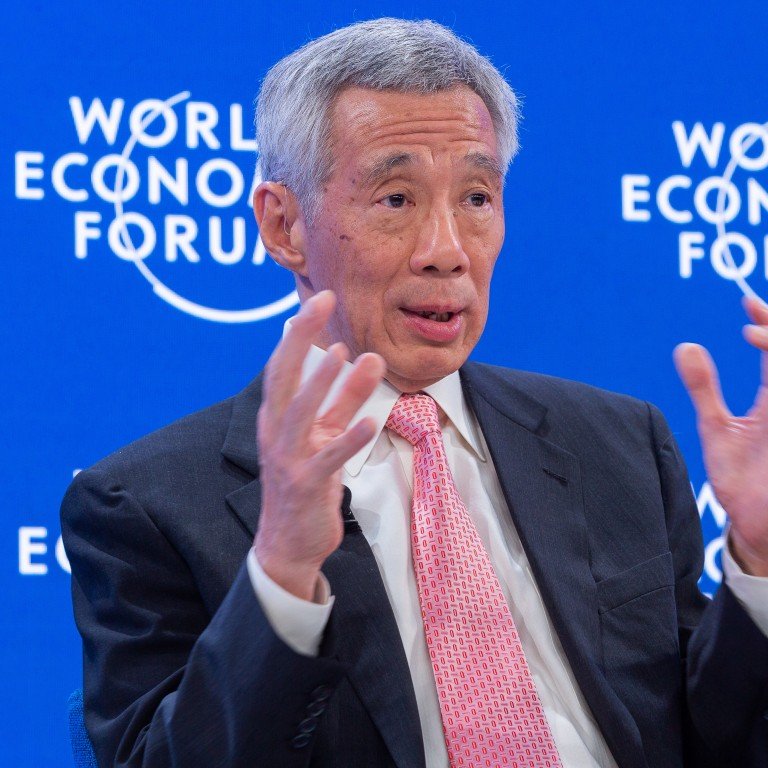
In a speech at the 50th World Economic Forum in the ski town of Davos, Switzerland, Lee said that the US, China and globalisation are three major external factors that have driven the economic prosperity of Singapore, but they are all changing now.
"So we would like to continue to work with America, we would like to continue to work with China," he said, adding that from time to time, Singapore will find itself being pressed to choose sides.
In his speech at the Shangri-La Dialogue in Singapore on May 31, Lee conveyed that Singapore and other countries in the region do not want to be forced to choose between China and the US.
The statement came after the US pressed its security allies and partners to ban Chinese telecom giant Huawei from their 5G networks. Singapore has so far not excluded any vendors from building its 5G network, but said any systems must meet security requirements.
Lee said on Wednesday that the prospect of "bifurcation in technology, whether in 5G or the whole supply chain" would lead to a series of reactions of distrust that would force nations to set up their own separate supply chains.
"It will take a long time for that process to come, to run its course, but it is a very expensive process, which is going to hurt us," he said.
Lee said he was worried that the mutual suspicions and doubt between China and the US will only create more friction and problems, and that the consequences of a decoupling scenario would be very bad.
It is a serious issue, he said, how an incumbent superpower like the United States accommodates a rising new power, China.
Kenneth Rogoff, a Harvard University professor of economics, said some of the decoupling will happen, and it's going to be painful.
This article originally appeared on the China Economic Net


1729662874-0/One-Direction-(1)1729662874-0-165x106.webp)





1732084432-0/Untitled-design-(63)1732084432-0-270x192.webp)








COMMENTS
Comments are moderated and generally will be posted if they are on-topic and not abusive.
For more information, please see our Comments FAQ